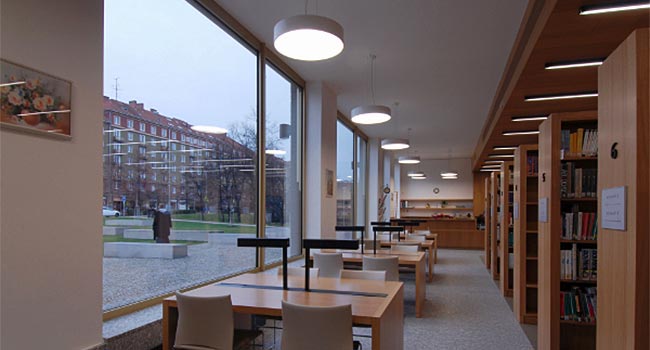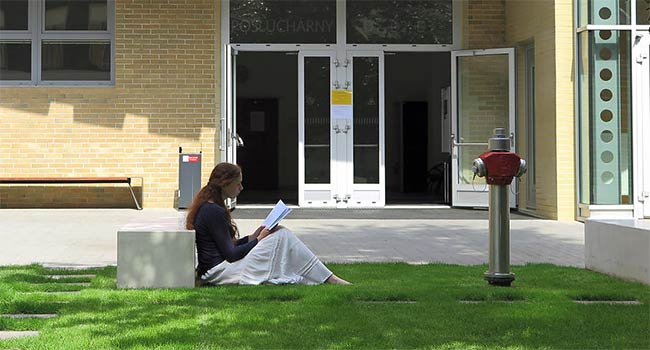Informatics
By studying the Bachelor's degree programme in Informatics you will gain a fundamental education in this field of science. You will study basic mathematical disciplines, algorithms, programming theory and other methods related to the design and analysis of complex computer and other systems.
The main advantage you will gain from studying this program will be the lasting value of a computer science education, not training. You will not be an instructed user of information technology, but an expert/professional with appropriate analytical thinking and a comprehensive view of solving a wide range of computer science aspects, as well as problems that transcend into everyday civilian life.
Therefore, you will also easily find a place in the job market and your work will be valued accordingly. Moreover, as a student of this programme, you can individually profile a significant part of your studies by choosing optional subjects from a range that fully covers contemporary knowledge in the field of computer science. This programme is an ideal starting point for subsequent study of key branches of computer science, such as artificial intelligence, cybersecurity, computer graphics, data processing, bioinformatics, or the theory of computer science as a discipline.
You can also complement your studies by getting involved in the research activities of your teachers or by collaborating with a commercial company that is an industrial partner of the faculty.
| Czech Study Programme | |
|---|---|
| Form | Full-time |
| Duration of study | 3 years |
Is studying the programme for you?
The study will be demanding especially on the ability of abstract and systematic thinking, on the contrary, it does not build on the ability to memorize facts. Do you have any doubts whether you can handle the study? A reliable indicator for you is the ease with which you can handle high school mathematics, or your interest in logic puzzles or success in various cryptographic games.
During your first year of study, you can seamlessly transfer to our sister programme, Programming and Application Development.
Graduate Profile
Graduates of this degree programme typically go on to study for a further Master's degree. However, the immediate employment of graduates in the job market is also seamless; you can work in a variety of positions with a focus on programming or information technology. As quality professionals in the field, you will be highly valued in the job market.
Where to go after this degree?
Suitable follow-up FI Master's programmes:
- Theoretical Computer Science
- Artificial Intelligence and Data Processing
- Visual Informatics
- Computer systems, communication and security
Graduate employment survey
FI graduates are valued in practice, with an average gross starting salary of more than 45,000 CZK in the last few years, according to a survey of all levels of study. More about graduate employment
Meet successful graduates

Associate Professor, University of Oxford, UK (2013-2017)

Assistant Professor, TU Munich
"After my state exams, I went to Munich for my PhD studies, for which the Parallel and Distributed Systems course prepared me very well. After two years as a postdoc at IST Austria, I got an assistant professor position at TU Munich."
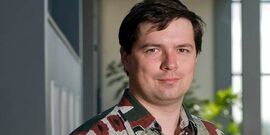

Young graduate awarded by Forbes magazine replaces human power with computer
Thanks to his studies at FI MU and his skill, Filip Široký got an internship at the world's top scientific centre CERN and now has a permanent job there.
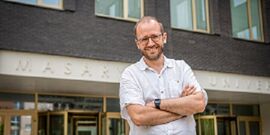
Billionaire Nešetřil: I don't want to live in a society that overlooks the unsuccessful
The graduate of the Faculty of Informatics at MU has succeeded in business and is now launching the project Česko.Digital, which will make the Czech Republic a better place to live.

Computer science graduate manages a national treasure
He introduced the Internet to colleges and homes, and today he is the chairman of the board of directors of the association that manages the national .cz domain.

Forty hours a week does not guarantee success
A graduate of FI MU works as a manager of startup programmes at the South Moravian Innovation Centre (JIC), helping innovative ideas and companies succeed on the market.

Fresh graduates are afraid to take risks
A young FI MU graduate leads a growing NetSuite branch with nearly 300 employees.

MU graduates create an automated lawyer
What happens when a lawyer and a computer scientist meet? A successful and fast-growing company that provides an online platform for creating customized legal documents can emerge.
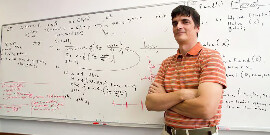
I come up with the most ideas when I argue with my colleagues
Theoretical computer scientist Tomáš Brázdil has found the practices of the characters in Big Bang Theory to be very useful.
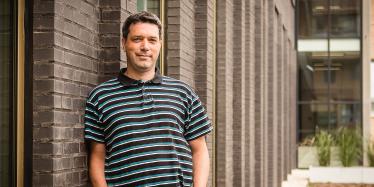
Head of Mycroft Mind: We turn electricity data into information
Filip Procházka, a graduate of the Faculty of Informatics, focuses on the analysis of data on distribution systems.
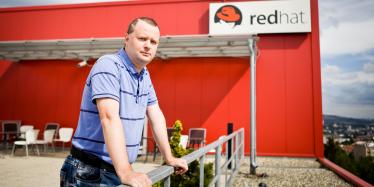
He was at the birth of the MU Information System. Today he is a developer at Red Hat
As a student, Jan Pazdziora was part of the team that implemented IS at MU. Now he is one of the main brains behind the American company Red Hat.
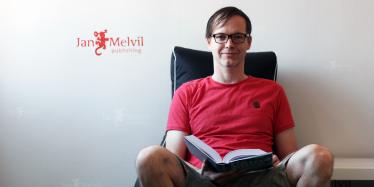
People want to eliminate chaos through self-development
Tomáš Baránek, a graduate of FI MU, was at the birth of the successful Jan Melvil Publishing.

Vladimír Chvátil creates games for the world
His board game Codenames has sold a million copies in thirty languages and is now a bestseller like Settlers of Catan.
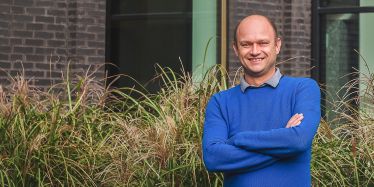
From SpaceX back to Brno: FI MU graduate worked for Elon Musk
Faculty graduate David Pavlík has worked for several famous employers in the USA over the past 12 years.
In the study catalogue you will find lists of required and elective courses and a recommended course of study.
Internships are not scheduled as part of the degree program.
Involvement in research and development
Students have the opportunity to engage in scientific research or development work within the FI research laboratories. At the undergraduate level of study, collaboration typically takes the form of laboratory projects or laboratory-led theses. Typical topics of such focused bachelor theses include evaluation of new procedures, implementation of prototypes, or participation in the development of larger software products.
Compulsory elective courses in single-subject studies
By choosing a concentration, a student may specialize or prepare for study in a specific follow-up master's program. The concentration corresponds to the selected courses as listed in the course catalog.
- Open Computer Science
- Computer Systems, Communications and Security
- Robotics
- Visual Informatics
- Graphic Design
- Natural Language Processing
- Foundations of Mathematics
Associated Studies
In the Computer Science programme you can also study in so-called associate studies, where you choose a major and one optional minor from the offer of another faculty.

